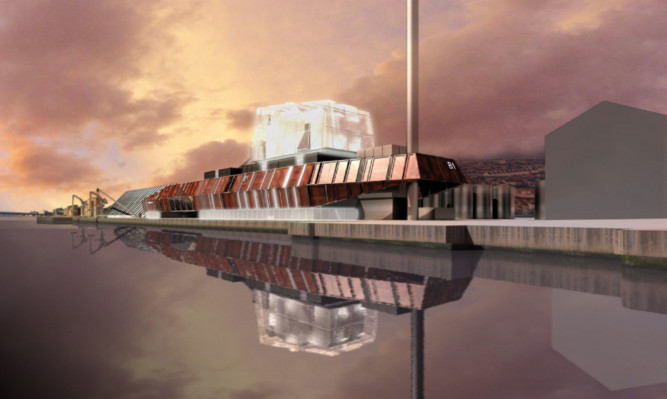Councillors may have been “spooked” by the sheer weight of technical data placed before them during the Dundee biomass plant deliberations, according to administration leader Ken Guild.
The defection of seven SNP councillors to the opposition made Monday evening’s biomass vote one of the most sensational seen in Dundee City Chambers for many years.
Mr Guild said beforehand his group would treat the issue as a planning one and give members a free vote without political affiliation.
That seven Nationalists voted for the Labour/Conservative amendment and only four were persuaded to vote with Mr Guild and Lord Provost Bob Duncan was a big surprise.
Mr Guild admitted: “I knew one or two weren’t happy with the idea of the biomass because of environmental and other concerns but I think the nature of the deputations was a factor in the outcome.
“Some of the speakers from the various groups had detailed scientific knowledge and pitched their presentations in the manner that would have been appropriate at a university seminar, rather than a council meeting.
“Some of the councillors may have decided the information they were getting was too much to take in and it was better to put the whole thing to a public inquiry, where the claims can be challenged by people from the Scottish Environment Protection Agency and other experts.”
Asked if he thought members of his group were “spooked” by the speakers from Friends of the Earth, Biofuelwatch and West End Community Council, he said he could not disagree with that interpretation.
Labour’s Richard McCready and the Conservatives’ Derek Scott were delighted at the success of their agreed amendment, which will now be presented at the public inquiry as the council’s official position on the biomass.
It will also be for them to speak in support of the position at the hearing, which will probably take place in Dundee next year.
Their motion was that the council object to Forth Energy’s application because its emissions would exacerbate poor air quality and have an adverse impact on public health.
They also felt the development of such height, scale and massing it will be taller than the former Tayside House would adversely impact on the visual amenity of the city and form a “discordant feature” of the waterfront.
Liberal Democrat councillor Fraser Macpherson withdrew his similar amendment and voted with the enlarged opposition.
Mr McCready said he wanted to do everything he could to bring sustainable jobs to Dundee but he was concerned about the plant’s impact on air quality and the health of Dundonians.
The Labour member said: “Over 3,000 members of the public have objected to the proposals, with seven in favour, we are told. My postbag reflects this, except that I have not received any correspondence in favour of the proposal.”
He noted NHS Tayside did not consider all their concerns about air quality and public health have been addressed.
He added: “I am not convinced we heard enough to easily dismiss the arguments of the objectors. A public inquiry will allow all the issues to be dealt with in an open and transparent manner and I am convinced this is the best way forward.”
Councillor Scott said: “Jobs should not be at the cost of the health of the citizens of Dundee.”
